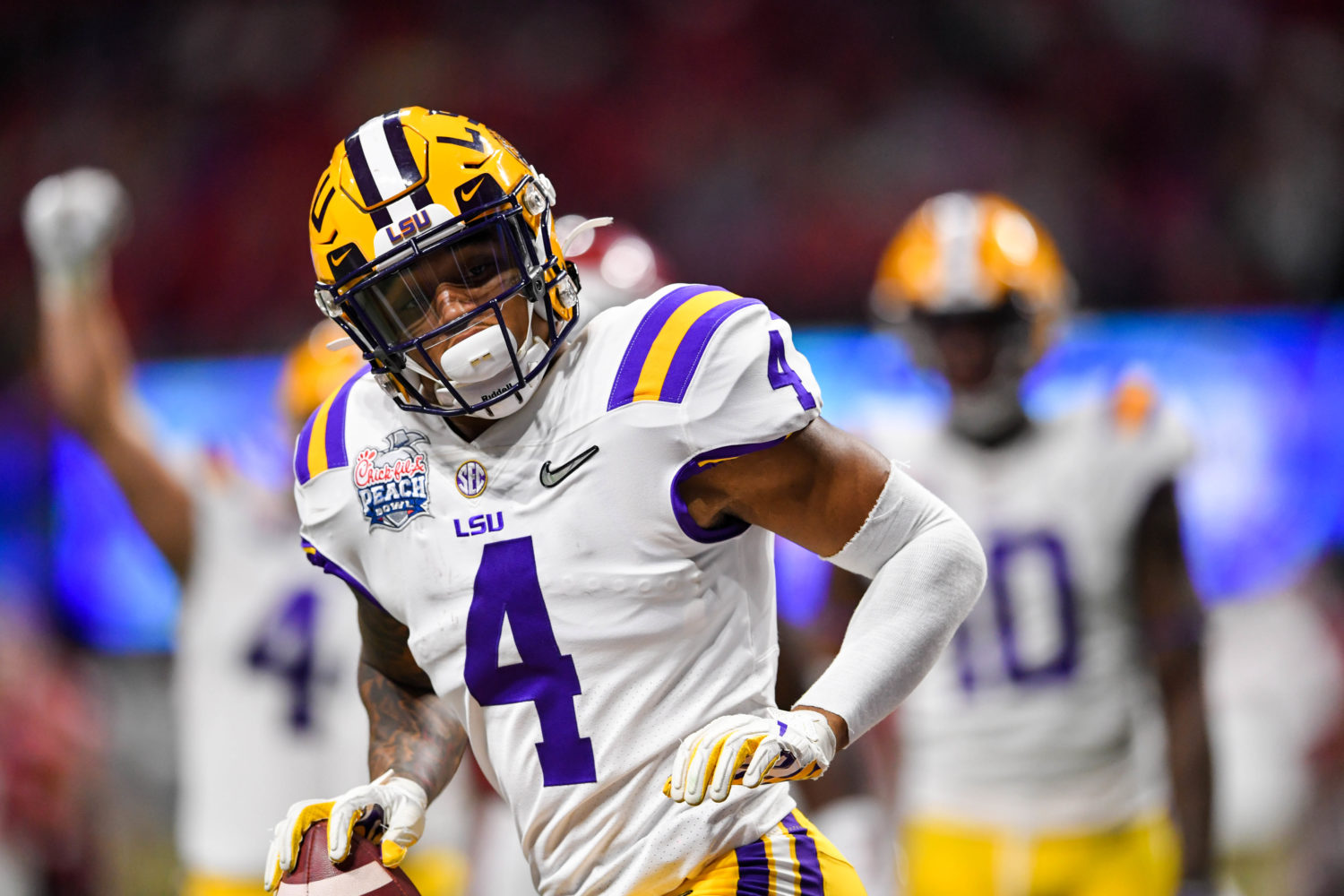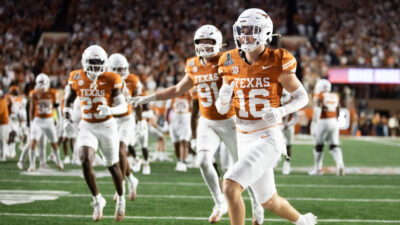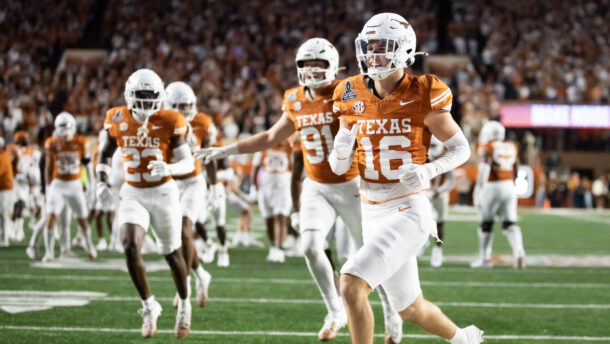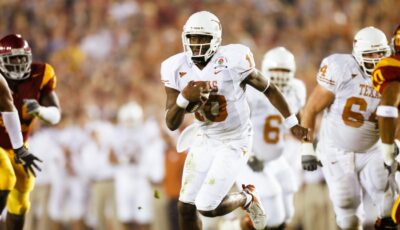
John Emery Jr. is in his second season at LSU.
He played in 10 games last season and didn’t start any.
He hasn’t started either of the first 2 games this season.
But the game at Vanderbilt last Saturday was different.
Starting running back Chris Curry had an undisclosed injury that the Tigers hoped would not keep him out of the game. But a medical evaluation after pregame warm-ups determined it would be best for Curry not to play.
Tyrion Davis-Price got the start, but Emery got a chance on the Tigers’ second possession and he ran with it – and kept running.
Emery wound up having a starter’s impact in the 41-7 victory – a team-high 103 yards (his first 100-yard game) and a 12-yard touchdown on 12 rushes.
“That’s the John Emery we recruited,” coach Ed Orgeron said. “It took a little while. It’s just like any other freshman. Everyone grows at their own pace. John is a terrific young man, a confident young man, hard-working. He’s gotten bigger and stronger in the weight room. He knows his plays. He hangs onto the football, and he’s very eager.”
Emery was a 5-star recruit and the No. 2 running back prospect in the country when he signed with LSU in 2019.
He had just rushed for almost 1,700 yards and 26 touchdowns in helping Destrehan High School reach the semifinals of the state playoffs in Louisiana’s highest classification.
He was the highest-rated running back to sign with the Tigers since 2014, when Leonard Fournette chose LSU as the top recruit in the country.
Emery’s signing was a big deal. He was going to be a star – perhaps even as a true freshman.
Davis-Price also arrived as a well-regarded recruit, Curry had shown potential as a freshman a year before and a guy named Clyde Edwards-Helaire had been an effective contributor the previous 2 seasons.
But Emery was going to be a significant part of the running back-by-committee approach. All the recruiting services believed it, Orgeron believed it, everyone believed it.
Then nothing went as expected.
Edwards-Helaire immediately thrived in the new offense that featured first-year passing game coordinator Joe Brady’s usage of running backs as pass catchers out of the backfield and from the line of scrimmage.
Curry’s maturity after a year in the program gave him an edge that Emery couldn’t erase and even Davis-Price emerged as the more prominent newcomer.
Emery never emerged, never found a significant role as the Tigers rolled to the CFP championship. He didn’t even rush for as many yards as Joe Burrow, who won the Heisman Trophy in a runaway because he passed for a gazillion yards, not because he ran for a mere 368 yards.
But Emery rushed for just 188 yards and 4 touchdowns on 39 carries.
He was an afterthought in the offense.
And as his sophomore season approached, he was still a bit of an afterthought, though Orgeron said he expected a 3-man committee at running back this season. Curry started the opener against Mississippi State, but Davis-Price and Emery were still going to be central players in the offense.
Then the Tigers fell behind Mississippi State in the opener and played from behind for much of the game.
The running game wasn’t a prominent part of the game. Curry rushed for 47 yards, Davis-Price for 43 and Emery for 27.
Then came Vanderbilt and Curry’s absence.
Next comes Missouri, in a game moved to 11 a.m., local time, Saturday at Missouri.
Orgeron said he thinks Curry will be able to play.
“I feel good about all three backs right now,” Orgeron said, “and all three are equal in my mind.”
Emery made the most of his opportunity last week. Let’s see if he can take the next step Saturday.
Les East is a New Orleans-based football writer who covers LSU for SaturdayDownSouth.com. Follow him on Twitter @Les_East.







